Do you own chinchillas?
Do you know what they love and what not?
Are you wondering do chinchillas like to be held?
You are in the right place!
Here you will find many interesting pieces of information which will help you with your chinchilla pet.
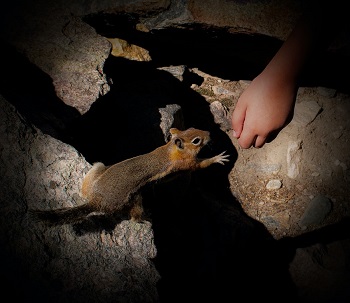

Tips For Chinchilla Owners
1.Should You Hold Your Chinchilla?
People often wonder if chinchillas like to be held. The answer is simple, it depends on the type and behavior of your pet. You have to keep in mind chinchillas are not similar to cats and dogs and they certainly would not be too happy if you keep and pet them for a long time. You can play with them briefly but then let them rest. In the beginning, you gradually teach them to hold because some species are quite aggressive. In order for your chinchilla to love being in your hands, you need to create trust. You will create a trust if you are calm, positive, talk slowly, do not make noise, and approach the animal easily. Chinchilla will be afraid of you if you treat it rudely, and if you are too loud. In that case, it would not let you hold it and is very likely to try to bite you. Try to caress it every day, so that it gets used to your touch and gains trust. If you notice that the chinchilla is restless in your hands and that it wants you to let it go, put it back in its cage, otherwise, it will be afraid of you and will find it harder to get used to.
2.How To Held Chinchilla
When you go to receive your chinchilla you have to be extremely careful. First, some species are very aggressive and can hurt you if they are scared. Also, you can hurt them if you hold them incorrectly. Chinchillas have sensitive ribs, which you can damage if you squeeze them a little harder. You can receive them by the tip of the tail but in a way that supports the rest of their body. You have to be careful not to damage their tail, or press hard on them. When holding a chinchilla by the tail make sure it is only for a short period of time, for example when cleaning a cage and moving them to another. Also, do not hold these animals in your hands for long. They are not used to being held and caressed by someone. Pay attention to their behavior when they are in your arms. If they are used to you they will probably be comfortable for a few moments, but they might get upset soon. When you notice that their mood is changing, let them continue to play on their own.
3.How To Play With Chinchilla
Like any other pet, chinchillas love to play too. This is very important if you want a healthy, fit, and happy chinchilla. There are a lot of toys that chinchillas will adore. They like to play with chew balls and woven carrots. You would not go wrong with any chew toy. Also, such toys are great for their teeth. Chinchillas will love music too. Music will calm them down and relax. Of course, make sure the music is relaxing and not too loud. When it comes to toys, it is best to buy wooden chewing toys. Watch out for material when buying toys because some toys are dangerous for your pets. If your chinchilla likes to nibble everything and has very sharp teeth, and each toy quickly ends up in the trash, then buy it a parrot chewing toy. These toys are known to be the strongest, so they will last longer. Of course, you also need to let the chinchilla play outside the cage. You can arrange one playroom, so you don’t have to hunt chinchillas around your apartment. Remove all sharp objects, move other pets to another room, close doors and windows. Chinchillas are kept out of cages for a minimum of between two and four hours daily.
4.Best Food
You need to feed your chinchillas with healthy food. Prepare a healthy and proper diet. Make sure you always have hay on hand because it is the best food for chinchillas. High-quality grass hay, such as timothy hay or orchard grass hay are the best and healthiest for chinchillas. Also, pallets should be pale. They should be free of seeds and dry fruits. Some foods are extremely harmful and also poisonous to chinchillas, so check what you are feeding them. Do not feed them avocado, peas, cabbage, corn, lettuce, broccoli, and spinach. If you are constantly giving one type of food and you want to change the brand you need to do it carefully and slowly. Slowly accustom the chinchilla to a new type of food, because if you do it suddenly, the chinchilla could easily get sick. Chinchillas love fresh food, especially vegetables, so feel free to offer them carrots, kale, and lettuce. Make sure these vegetables do not contain pesticides.
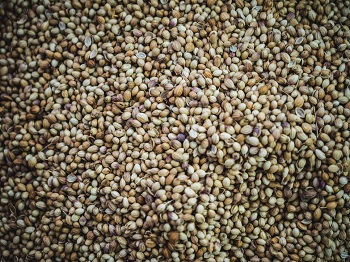

5.Grooming
You would not have much to do with cleaning and combing chinchillas. Chinchillas will groom themselves. Make sure your chinchilla is clean in the cage. Also, buy chinchilla dust to wash your chinchilla. It is a type of powder that will clean your furry pet. A healthy chinchilla will not need much of your grooming help. If your chinchilla is constantly in a clean place, free of dust and allergens, then you do not need to groom her. But chinchillas like to sniff everywhere and get smeared so quickly, they can not clean all that dirt on their own, and that is why they need you. Never bathe your chinchilla in water. They can be easily frightened by water and thus drop hair. It is their defense mechanism against predators, and they use it whenever they feel in danger. For this reason, chinchilla dust is used. Never confuse dust with sand or any other preparation as it can significantly damage the skin and hair of your chinchilla. It is very important that you check your chinchilla’s eyes and ears regularly because dust can stay there and thus damage some of the senses.
6.What Is Dangerous For Chinchillas
Chinchillas are small animals that are often targeted by other animals. If you have other pets, such as a cat or dog, watch how they behave near the chinchilla. Chinchillas could not defend themselves against them if they were attacked. Also, cats and dogs can have a variety of bacteria in their body, such as Pasteurella multocida. This bacterium is very dangerous for chinchillas. That is why it is important to take your animals to the vet for regular checkups and take good care of them. If you own several chinchillas, they can often come into conflict. They can also bite and can cause larger wounds that can kill your chinchilla. Chinchillas often develop dental diseases because they do not eat quality food and do not chew good toys. For this reason, their teeth do not outwear properly as they grow. Another problem that occurs is overheating. Chinchillas are accustomed to cold conditions, but when kept as pets, their bodies overheat because they are accustomed to lower levels.
7.Why Are Chinchillas Dangerous For Humans
Chinchillas are cute animals that will make your home happy, but are they a smart choice for a pet? As already mentioned, chinchillas can be very aggressive if they are scared or if they do not trust you. They have a strong bite and can seriously injure you. But also one of the disadvantages of these animals is that they are carriers of many diseases. Also, chinchilla diseases can be easily transmitted to humans. For that reason, it is not very wise to hold them in your hands a lot. Some veterinarians, therefore, advise that chinchillas should not be taken as pets. If you are a big fan of chinchillas, it is important that you take good care of your animal, take care of it, clean it regularly, feed it healthily, and practice a healthy lifestyle, and of course, you often go to the vet for checkups.
To Sum Up
Here you could read about the best tips for chinchilla owners. Also, you could find the answer to the question: do chinchillas like to be held? You have to give chinchillas love and a sense of security, and only then can you teach them to hold in their hands. Some species are aggressive and can injure you. Try to suppress their fear so that they get used to you. Also, be careful how you hold them so as not to hurt them as they are very sensitive. Make sure you feed them healthy so that your chinchilla can live as long as possible. Chinchillas are not smart to hold in your hands because they are carriers of various diseases that can easily be transmitted to humans. It is important to take care of your chinchilla so that these diseases do not even occur. Therefore, follow all the instructions you could read and everything should be fine.


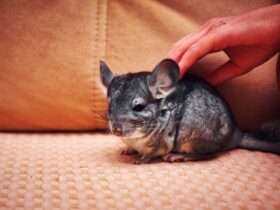
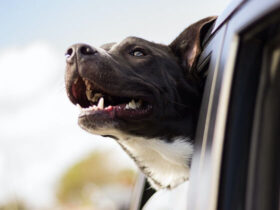
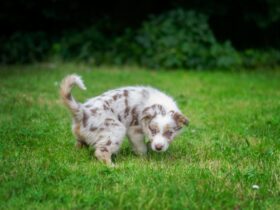
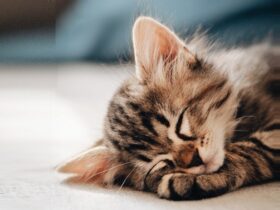

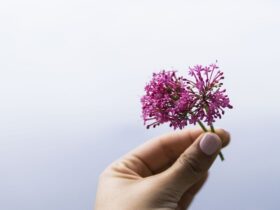
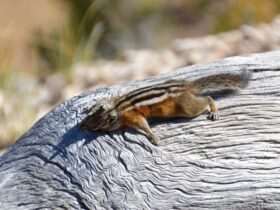









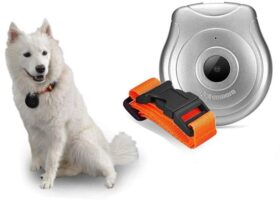
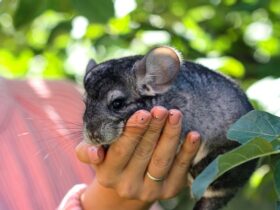
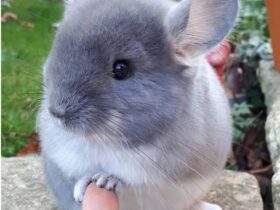

Leave a Reply